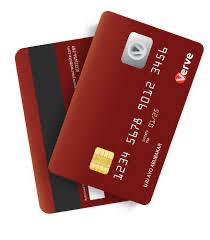When The Regulator Becomes A Player – Unravelling Recent Developments In The Payment Card Sector
Like other emerging markets across Africa, the payment industry has led the way with technological advancement in Nigeria.
However, while several sectors of the industry have been decentralized, the cards and tokens sector has stood out considerably, with the same key players innovating consistently to progress the sector over the years.
Initially, there were no indigenous players; but mainly two foreign card schemes of international repute – Mastercard and Visa- had recognised the opportunity in Nigeria’s developing payment sector and had swiftly cemented Nigeria’s adoption of ATMs and digital payments with different variants of their cards. Their activities in Nigeria were of course effectively guided by the Central Bank of Nigeria (CBN) who has remained the chief regulator of the sector.
While these card schemes delivered value in their own way, there were obvious challenges with Nigeria’s complete dependence on international card brands to facilitate and power local payments. Costs of production and processing cards posed a challenge that actively affected the customer’s experience and expense when using these cards. The culture gap was also evident as most semi-empowered Nigerians with lower disposable cash could not relate to or afford to use these cards. Naturally, this impacted on general adoption and usage statistics, somewhat frustrating the attempt to reduce cash’s reign and engineer a new way of life that was more card or code dependent, than cash dependent.
It was therefore extremely remarkable and a thing of national pride when an indigenous company launched their own card scheme – Verve. It is perceived that Verve was deployed as adomestic card scheme with a broad appeal to other African countries. The birth of Verve meant that banks could now process payments card quicker, and at a lesser cost. It also meant that more people could access a card scheme that was readily available and affordable for them. The card also empowered more Nigerians-including the bottom of the pyramid- to own a card at affordable cost.
It has been over 12 years since Verve emerged and the card scheme has achieved several remarkable feats, further demonstrating CBN’s ability to regulate the industry in a sustainable manner and support local advancement. Since it ismore affordable to produce and process, Verve card enjoys massive acceptance across Africa and the globe. The other card schemes are also owning their own, delivering value to the more elitist group, their major offerings revolving around international payments and cross-border shopping. The collaborative competition between the major card schemes in Nigeria has enhanced payment experience for Nigerians, and also positioned the CBN as an agency with the ability to regulate the industry in a sustainable manner while providing support for local advancement. However, the Verve card, hinged on its cost effectiveness, enjoys massive acceptance across Africa whilst leveraging strategic global partnerships.
The CBN has done a great job moderating a healthy competition amongst the card schemes that has benefitted both the financial sector and customers over the years. While Mastercard and Visa have continued to promise and deliver on seamless digital payments both locally and internationally, the foremost fully indigenous card scheme, Verve, has also consistently innovated, delivering simple and seamless payments at home, and expanding to cater to digital and web transactions as well. It has been observed that The Verve Card Scheme recently activated online payments for household platforms like Facebook, Spotify, Netflix and more. It seemslike the gap is reducing, as all levels of the socio-economic class in Nigeria now have card or cardless options catering to their needs at every level.
The CBN’s moves in recent times have however compelled analysts to put on their analytical caps and banter with hypotheses and scenarios, leading one to wonder at the agency’s recent actions and policies. First, the unique selling point for international cards like Mastercard and Visa seemed to have been handicapped when the CBN directed against making international payments with Naira cards beyond 20 Dollars. Some have argued that the policy seemed to have been aimed as part of the solution to the FX volatility with respect to the Naira with, perhaps, some unintended demystification of the offerings of the card giants, putting them in a precarious position. Not long after, the cashless policy was announced, startling the market, and raising several questions. While many analysts have argued that it would eventually benefit the man on the street and drive increased dependence in favour of the card schemes, others have expressed concern at the timing and purpose of it all.
The latest development may have compounded the debates and analysis some more, while seemingly complicating the situation. Partnering with the Nigeria Inter-Bank Settlement System Plc (NIBSS), the Central Bank is set to unveil a new card scheme, in January 2023. This singular development may have triggered genuine concerns and questions about CBN’s actions, even if their intentions and strategies were well thought out.
It is common knowledge that regulators are expected to be non-partisan, with a bird’s eye view on the industries they regulate, such that they can take objective measures to ensure sanity and progress within the industry, prioritising the economy and ordinary citizens. With CBN and NIBSS set to launch a domestic card scheme; there are questions about CBN’s ability to both regulate and still play in a sector it once only regulated.
There are concerns that this move could easily dissuade innovators and investors from pushing the envelope to deliver new possibilities for Nigeria. Such innovators would wonder if at the peak of their efforts, when success becomes apparent, the country would make policies that would cannibalize their efforts unduly.
Some observers have argued that if anything, the CBN, NIBBS and Nigeria should rally round a successful indigenous card scheme like Verve to overcome the challenges combating businesses that are fully owned and driven by Nigerians, while encouraging independent new entrants to take a dive in the pool and create many more viable and beneficial alternatives for Nigerians.
If NIBSS and CBN succeed with launching this card, would Nigeria’s payment sector seem like the proverbial house divided against itself? The future of Nigeria’s payment sector, among others, would to a significant degree be dependent on the outcomes of the recent policies and plans of the CBN. I hope and pray the CBN has factored in the myriad of possibilities, both positive and otherwise.




